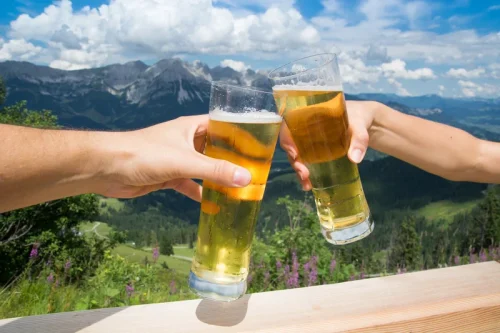Content
Some people begin to feel, think or behave differently when a relapse is brewing. As the journey unfolds there will likely be bumps in the road, which should not be viewed as failure. Instead the challenges faced in recovery should be seen as just that, as simply obstacles to overcome. An ironclad relapse prevention plan can help minimize those challenges. Therapy not only gives people insight into their vulnerabilities but teaches them healthy tools for handling emotional distress. Prolonged stress during childhood dysregulates the normal stress response and can lastingly impair emotion regulation and cognitive development.
Certain people, places, and situations can drive you back into drinking or using drugs again. Relapse means going back to using after you’ve been abstinent for some time. The National Institute on Drug Abuse estimates that 40 to 60 percent of people who were once addicted to drugs will eventually relapse.
Find Drug Rehabilitation Centers Near You Anywhere In the US
Here are some tips for safeguarding your sobriety with wise planning. • Build a support network of friends and family to call on when struggling and who are invested in recovery. For those seeking addiction treatment for themselves or a loved one, the addictionresource.com helpline is a private and convenient solution.
Identifying your warning signs early on gives you time to get help before things spiral out of control. Why did you use drugs or drink alcohol before you were in drug rehab? Recognizing your usage patterns can help you pinpoint https://ecosoberhouse.com/article/relapse-prevention-plan-how-it-can-help-you-stay-on-track/ the things that cause you to resort to substance abuse. It is also helpful to make a list of times in the past when you relapsed and reflect on the situations or events led to those instances of substance abuse.
Establish an Action Plan
Such feelings sabotage recovery in other ways as well—negative feelings are disquieting and are often what drive people to seek relief or escape in substances to begin with. In addition, feelings of guilt and shame are isolating and discourage people from getting the support that that could be of critical help. Mutual support groups are usually structured so that each member has at least one experienced person to call on in an emergency, someone who has also undergone a relapse and knows exactly how to help.
Since
it can be difficult for an addict to notice relapse signs as they occur, you may want to periodically ask the people closest to you if they
see any signs of relapse in your behavior. This is why people in recovery often
like to have other recovering addicts help them with their recovery. Often a
fellow addict can see the signs before someone else can. Triggers are people, places and things that can cause an
addict to experience a craving or urge to use a substance. Keep in mind that no
matter how much you think about it, you won’t be able to identify and avoid all
triggers. For example, consider alcohol which is legal and cannot be completely
avoided.
Triggers
Studies show that social support boosts the chances of success. Help can come in an array of forms—asking for more support from family members and friends, from peers or from others who are further along in the recovery process. It might mean entering, or returning to, a treatment program; starting, or upping the intensity of, individual or group therapy; and/or joining a peer support group.
- No matter what you do, there will always be some
consequences of addiction that cannot be avoided. - If an individual remains in mental relapse long enough without the necessary coping skills, clinical experience has shown they are more likely to turn to drugs or alcohol just to escape their turmoil.
- As time passes, it may be important to revisit your relapse prevention plan.
- That view contrasts with the evidence that addiction itself changes the brain—and stopping use changes it back.
It should not be used in place of the advice of your physician or other qualified healthcare providers. Create a relapse prevention action plan for what to do instead of turning to drugs or alcohol. For example, if going through a breakup could lead to a relapse, think of other outlets for your pain and frustration. Instead of drinking or using, plan to attend a support meeting or call a family member or close friend right away.
Care for yourself
Those ways are essential skills for everyone, whether recovering from addiction or not—it’s just that the stakes are usually more immediate for those in recovery. Many experts believe that people turn to substance use—then get trapped in addiction—in an attempt to escape from uncomfortable feelings. Attention to sleep and healthy eating is minimal, as is attention to emotions and including fun in one’s life.



